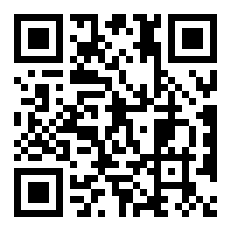LEGAL FRAMEWORK FOR CONSUMER PROTECTION IN NIGERIA
DOI:
https://doi.org/10.60787/kblsj.v1i2.20Keywords:
Fake products, Manufacturer, Consumer, Liability, Goods and ServicesAbstract
Abstract
There is a local reasoning ascribing honesty and diligence on both producer and consumer or buyer. The reason is not far-fetched. Commercial transaction is usually conceived as a spiritual relationship, requiring fairness and justice. Consequently, the laws on product liability ordinarily strive to promote the protection of the consumer from the harmful effect of defective and substandard products. There are times, where products fail to meet the required standard capable of ensuring fairness and justice. It is against this background, that the authors argued that the prevalence of laws and rules on consumer protection, ordinarily act as a push-drive and commends the propensity of putting the manufacturer on check against fake, substandard and adulterated products in the process of manufacturing goods. The authors further argued that the concept of consumer protection must be seen to revolve around enforceable remedies available to the ultimate consumer in the event of defective products and substandard goods. The paper demonstrated the need for the existence of regulatory bodies, inclusive of Standard Organization of Nigeria, the National Agency for Food and Drug Administration and Control, the Consumer Protection Council, the Utilities Charges Commission, the National Insurance Commission, the Advertising Practitioners Council of Nigeria, and etcetera, specifically created to provide a platform for regulating activities of the manufacturers against a defective product in the Nigerian market space. The authors therefore maintained that though some of the functions of the aforesaid bodies overlap, their operations have positively impacted on the consumer who is always at the receiving end, and at the same time, created consciousness on the manufacturers as to the standard expected of them in the manufacturing of goods and rendering of services.
References
[Hereafter, The SON]
[Hereafter, The NAFDAC]
[Hereafter, The CPC]
[Hereafter, The UCC
[Hereafter, The NAICOM]
[Hereafter, The APCON]
A.S Hornby, (London: Oxford University Press) 6th ed. P. 246
O. Grady, Consumer Remedies (1982) 60 Canadian Bar Review (No 4) P. 549
London 1781/1962
S.6 (1) C.P.C Degree 1992
(1875) LR 19, 462
(2000) F.W.L.R [Part 23] P. 1237
The Sale of Goods Act -1893, which is a Statute of General Application and virtually all the states in Nigeria operate their respective Sale of Goods Law.
Cap 150 of Laws of Bendel State 1976, now applicable to both Edo and Delta States.
S. 12 (8) Sale of Goods Law Bendel State 1976, now applicable to both Edo and Delta States.
NLR 87
(2003) 6 NWLR [Part 816] P. 358
S. 14, Sale of Goods Law
(1900) 1 QB 513
S. 18 Sale of Goods Law
(1961) A.N.L.R 917
S. 16 (d) Sale of Goods Law
S. 15 Sale of Goods Law
(1868) LR 4 Exq 49
(1960) 1 ALL E.R 36
Unrep. suit NO: LD/1448/72
S.15 (6) Sale of Goods Law
(1910) KB 831
(1976) 12 CCHCJ 2709
UDC (1940) I KB 532
(1997) 4 N.W.L.R. Pt. 500) 419
(1838) 4 M & W 399
(1989) A.C 827
(1989) 2 N.W.L.R (Pt. 106) 730
(1932) A.C. 562
Donoghue, supra, Per Lord Atkin
Makwe v Nwukor (2001) FWLR (Pt. 63) 1
Lochgelly Iron & Coal Co. v McMullan (1980) P.L.R 583
FCA/L/10/82
(1980) P.L.R. 583
Unreported, Suit No: EHC/236/94, Delta High Court
(1893) I QB 256
[Hereafter, APCON]
[Hereafter, NAFDAC]
[Hereafter, CPC]
S.5 NAFDAC Act
S.3 CPC Act
Sections 5, 135, 136 & 137 of the Evidence Act, Cap 112 LFN 2004
Supra
Supra
(1994) 4 N.W.L.R (Pt. 49) 124
Supra
Evidence Act, Cap 112, Laws of the Federation, 2004
This should be a purely legislative action.
NY 382
Cal Rep. 697
Downloads
Published
How to Cite
Issue
Section
License
Copyright (c) 2024 KB Law Scholars Journal

This work is licensed under a Creative Commons Attribution-NonCommercial 4.0 International License.
The author reserves the licence with little restrictions.https://kblsp.org,Ng/licence.








